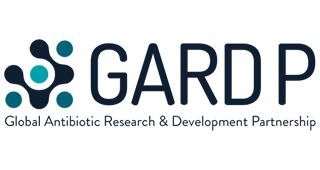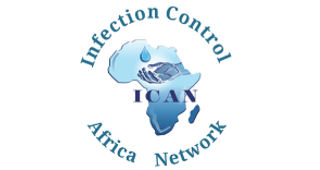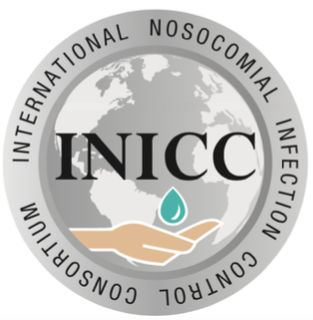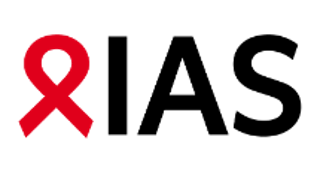 |
|
Maximum: 1 CME cr.,
1 AutoAttendance cr.
Sign in to view your progression
|
Activity Title: Antifungal Stewardship - Talaromyces Marneffei and Cryptococcus Neoformans
Release Date: May 18, 2021
Estimated Time to Complete Activity: 70 minutes
Statement of Need:
The aim of implementing an antifungal stewardship program is to optimize the use of antifungal drugs to achieve the best outcomes while minimizing adverse events and the emergence of resistance. Antifungal stewardship is less established than antibacterial stewardship because of a narrower and more complex evidence base along with fewer available drugs. Moreover, the diagnosis of fungal infections can be complex with an urgent need for reliable noninvasive and rapid diagnostic tests that can be used across different resource levels.
During this session, experts provide updates on the diagnosis, treatment, monitoring and prevention strategies for Cryptococcus neoformans and Talaromyces marneffei (formerly Penicillium marneffei), both important opportunistic pathogens in patients with AIDS and other immunosuppressive conditions. Focus is on diagnostic options and treatment and prevention strategies in areas with highest burden of disease, from Southeast Asia to southern China and sub-Saharan Africa.
Experts discuss how antifungal stewardship programs can take a multi-pronged approach to ensure timely testing and suitable prescribing and how institutional guidelines can guide diagnostic testing in at-risk populations; appropriate choice, dose, and duration of antifungal agents; therapeutic drug monitoring; and opportunities for de-escalation and intravenous-to-oral conversion for these pathogens.
Faculty:
Thuy Le, MD, DPhil
Associate Professor of Medicine
Duke University School of Medicine
Professor Henry Mwandumba
Deputy Director
Malawi Liverpool Wellcome Clinical Research Programme (MLW) in Blantyre, Malawi
Technical Requirements
This site and its activities are best viewed using the latest versions of the Chrome, Edge, Firefox and Safari browsers. For interactive content a broadband connection is required. For CME/CE activities featuring audio you need a sound card and speakers.
Our activities may require JavaScript to be enabled on your computer. If you are having difficulty viewing pop-up windows, click here for instructions on enabling JavaScript.
Contact Information
If you have questions about this CME activity, please contact The International Society for Infectious Diseases at info@isid.org.
For technical support issues, please contact Multilearning at support@multilearning.com
Supported by an Unrestricted Educational Grant from BioMerieux
Upon completion of this module, participants should be able to:
- Discuss implementing an antifungal stewardship program to optimize the use of antifungal drugs to achieve the best outcomes while minimizing adverse events and the emergence of resistance
- Reiterate why Antifungal stewardship is less established than antibacterial stewardship
- Describe how the diagnosis of fungal infections can be complex, and underscores the need for reliable noninvasive and rapid diagnostic tests that can be used across different resource levels.
- Discuss updates on the diagnosis, treatment, monitoring and prevention strategies for Cryptococcus neoformans and Talaromyces marneffei (formerly Penicillium marneffei)
- Restate diagnostic options, treatment and prevention strategies in areas with the highest burden of disease, from Southeast Asia to southern China and sub-Saharan Africa.
- Relate how antifungal stewardship programs can take a multi-pronged approach to ensure timely testing and suitable prescribing
- Explain how institutional guidelines can guide diagnostic testing in at-risk populations; appropriate choice, dose, and duration of antifungal agents; therapeutic drug monitoring; and opportunities for de-escalation and intravenous-to-oral conversion for these pathogens.
Physicians, nurses, public health officials, researchers, and other health professionals
Stott KE, Loyse A, Jarvis JN, Alufandika M, Harrison TS, Mwandumba HC, Day JN, Lalloo DG, Bicanic T, Perfect JR, Hope W. Cryptococcal meningoencephalitis: time for action. Lancet Infect Dis. 2021 Apr 16:S1473-3099(20)30771-4. doi: 10.1016/S1473-3099(20)30771-4. Epub ahead of print. PMID: 33872594. https://pubmed.ncbi.nlm.nih.gov/33872594/
Le T, Kinh NV, Cuc NTK, Tung NLN, Lam NT, Thuy PTT, Cuong DD, Phuc PTH, Vinh VH, Hanh DTH, Tam VV, Thanh NT, Thuy TP, Hang NT, Long HB, Nhan HT, Wertheim HFL, Merson L, Shikuma C, Day JN, Chau NVV, Farrar J, Thwaites G, Wolbers M; IVAP Investigators. A Trial of Itraconazole or Amphotericin B for HIV-Associated Talaromycosis. N Engl J Med. 2017 Jun 15;376(24):2329-2340. doi: 10.1056/NEJMoa1613306. PMID: 28614691. https://pubmed.ncbi.nlm.nih.gov/28614691/
Klus J, Ly VT, Chan C, Le T. Prognosis and treatment effects of HIV-associated talaromycosis in a real-world patient cohort. Med Mycol. 2021 Apr 6;59(4):392-399. doi: 10.1093/mmy/myab005. PMID: 33644813; PMCID: PMC8023982. https://pubmed.ncbi.nlm.nih.gov/33644813/
Johnson MD, Lewis RE, Dodds Ashley ES, Ostrosky-Zeichner L, Zaoutis T, Thompson GR, Andes DR, Walsh TJ, Pappas PG, Cornely OA, Perfect JR, Kontoyiannis DP. Core Recommendations for Antifungal Stewardship: A Statement of the Mycoses Study Group Education and Research Consortium. J Infect Dis. 2020 Aug 5;222(Suppl 3):S175-S198. doi: 10.1093/infdis/jiaa394. PMID: 32756879; PMCID: PMC7403757.https://pubmed.ncbi.nlm.nih.gov/32756879/
Joint Commission Resources: Antifungal Stewardship: A Practical Guide to Implementation. 2019. https://store.jcrinc.com/assets/1/7/antifungal_tool.pdf
Supported by an Unrestricted Educational Grant from BioMerieux
Disclosure Policy
In accordance with the EACCME Standards for Commercial Support, the International Society for Infectious Diseases (ISID) requires that individuals in a position to control the content of an educational activity disclose all relevant financial relationships with any commercial interest. ISID resolves all conflicts of interest to ensure independence, objectivity, balance, and scientific rigor in all our educational programs. Furthermore, ISID seeks to verify that all scientific research referred to, reported, or used in a CME/CE activity conforms to the generally accepted standards of experimental design, data collection, and analysis. ISID is committed to providing learners with high-quality CME/CE activities that promote improvements in health care and not those of a commercial interest.
Activity Staff Disclosures:
The planners, reviewers, editors, staff, or other members at the International Society for Infectious Diseases who control content have no relevant financial relationships to disclose.
ISID Knowledge Exchange and E-Learning Platform Organizing Committee members are listed here along with Committee members’ disclosure forms.
Faculty Disclosures:
Dr. Thuy Le's disclosure:
Grants/Research Support: Gilead Science
Professor Henry Mwandumba has no actual or potential conflict of interest in relation to this program/presentation
Moderator Disclosures:
Professor Sophie Yacoub has no actual or potential conflict of interest in relation to this program/presentation
Disclosure of Unlabeled Use
The International Society for Infectious Diseases requires CME faculty (speakers) to disclose when products or procedures being discussed are off label, unlabeled, experimental, and/or investigational, and any limitations on the information that is presented, such as data that are preliminary, or that represent ongoing research, interim analyses, and/or unsupported opinion. Faculty in this activity may discuss information about pharmaceutical agents that is outside of US Food and Drug Administration approved labeling. This information is intended solely for continuing medical education and is not intended to promote off-label use of these medications. ISID does not recommend the use of any agent outside of the labeled indications. If you have questions, contact the Medical Affairs Department of the manufacturer for the most recent prescribing information.
Disclaimer
The International Society for Infectious Diseases presents this information for educational purposes only. The content is provided solely by faculty who have been selected because of recognized expertise in their field. Participants have the professional responsibility to ensure that products are prescribed and used appropriately on the basis of their own clinical judgment and accepted standards of care. The International Society for Infectious Diseases, and the former commercial supporter assume no liability for the information herein.
Copyright Information
Copyright © 2021 by the International Society for Infectious Diseases. Any unauthorized use of any materials on the site may violate copyright, trademark, and other laws. You may view, copy, and download information or software ("Materials") found on the Site subject to the following terms, conditions, and exceptions:
• The materials are to be used solely for personal, noncommercial, informational and educational purposes. The materials are not to be modified. They are to be distributed in the format provided with the source clearly identified. The copyright information or other proprietary notices may not be removed, changed, or altered.
• Materials may not be published, uploaded, posted, transmitted (other than as set forth herein), without the International Society for Infectious Diseases' prior written permission.
Privacy Policy
The International Society for Infectious Diseases protects the privacy of personal and other information regarding participants and educational collaborators. The International Society for Infectious Diseases will not release personally identifiable information to a third party without the individual's consent, except such information as is required for reporting purposes to the ACCME.
The International Society for Infectious Diseases maintains physical, electronic, and procedural safeguards that comply with federal regulations to protect against the loss, misuse, or alteration of information that we have collected from you.
Additional information regarding the International Society for Infectious Diseases Privacy Policy and ISID’s Knowledge Exchange and E-Learning Platform Privacy Policy can be viewed at https://isid.org/privacy-policy/ and https://exchange.isid.org/isid/legal/terms-and-conditions.
|
ACCREDITED ACTIVITY
Antifungal Stewardship - Talaromyces Marneffei and Cryptococcus Neoformans
|
|







